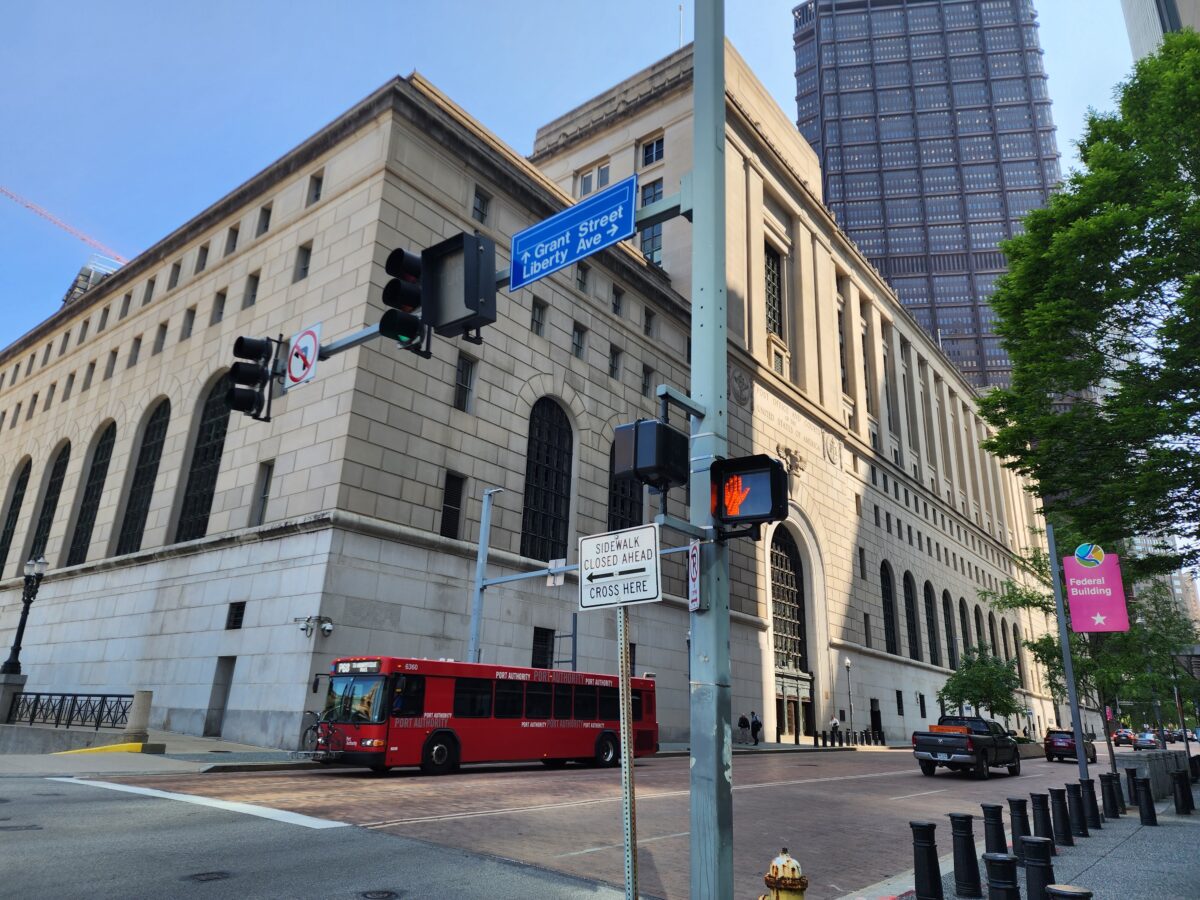The man found guilty of murdering 11 Jewish Pittsburghers in the Tree of Life building was involuntarily committed to a hospital three times, attempted suicide, attacked his mother, used illegal drugs and made antisemitic remarks to a psychiatrist hired by the defense to examine him.
The new revelations were made during expert testimony on the third day of the trial’s second phase — the penalty eligibility phase — focusing on Robert Bowers’ medical and mental health history.
Defense lawyers are hoping to show that the shooter didn’t have the mental capacity to form the requisite intent to make him eligible for a possible death sentence.
Dr. Siddhartha Nadkarni was the defense’s only witness on Wednesday. He testified for nearly eight hours.
Nadkarni is a clinical psychiatrist at Hackensack Meridian Health in New Jersey, who previously worked at New York University’s medical school. He diagnosed the shooter with epilepsy and schizophrenia.
Nadkarni’s diagnosis was made after spending about four hours with the defendant, performing various neurological tests, speaking with him and reviewing his medical history.
Lead defense attorney Judy Clarke spent a large portion of the morning reviewing various neurological reports and the shooter’s medical history, which included being involuntarily committed in 1988, 1990 and 2004, after suicide attempts, or claims he made that he was considering suicide. In one episode, he threw flammable liquid on his mother.
A medical record was introduced showing he also spent time at Children’s Hospital with a fever of 105 degrees when he was 5 years old and experienced hallucinations.
Nadkarni, an expert in neuropsychiatry and epilepsy, said that it was unusual to see such a severe medical history. It showed, he said, that Bowers “had something going on wrong with his brain at a young age.”
Epilepsy is often accompanied by other mental health issues, Nadkarni testified.
He said that schizophrenia can include a variety of symptoms including social and cognitive deficits, poor self-care, difficulty initiating thoughts, delusions, hallucinations, and chronic cognitive symptoms — all things he found in the shooter.
Nadkarni said the defendant told him that ink from his jail clothing was leeching into his body and being emitted through his skin into his prison bracelet, turning it redder as the month progressed. This breakdown between the self and the world, called Schneider Delusion, is profound and central to schizophrenia, Nadkarni said.
“To a reasonable degree of medical certainty, it is my opinion that Mr. Bowers is a person with schizophrenia and epilepsy, and that these are longstanding conditions rendering him incapable of assessing risk and consequences of his behavior,” Nadkarni summarized in a report prepared for the defense.
Prosecutor Eric Olshan cross-examined Nadkarni in a tense back-and-forth centering on everything from errors found in the doctor’s report to his diagnoses of epilepsy and schizophrenia.
The shooter, Olshan revealed, admitted to using cocaine, marijuana and acid, as well as heroin for back pain, all behavior that could cause the brain irregularities Nadkarni initially said pointed to epilepsy. The doctor agreed but said occasional drug use wouldn’t lead to such abnormalities.
Asked if the defendant was capable of planning and carrying out the attack at the Tree of Life building and murdering 11 people, Nadkarni said he was, but “the reasons are not reliable in his brain,” and that he suffered from delusion and paranoia.
After initially stating that he only had a short conversation with the shooter about the attack, Nadkarni said the defendant expressed antisemitic notions — that Jews drank blood and killed children. In his notes from this examination, but not included in his reports, the doctor wrote that the defendant said, “When the shooting stopped, he was ‘in the war now.’”
Earlier this month, the jury found Bowers guilty on all 63 federal counts he faced. On Oct. 27, 2018, he murdered Joyce Fienberg, Richard Gottfried, Rose Mallinger, Jerry Rabinowitz, David Rosenthal, Cecil Rosenthal, Bernice Simon, Sylvan Simon, Dan Stein, Irving Younger and Melvin Wax.
The jury is now tasked with determining his punishment. The trial continues on Thursday.
Related story: Resources are available to ease trauma during synagogue shooting trial.
This story is part of ongoing coverage of the Pittsburgh synagogue shooting trial by the Pittsburgh Jewish Chronicle and the Pittsburgh Union Progress in a collaboration supported by funding from the Pittsburgh Media Partnership.



